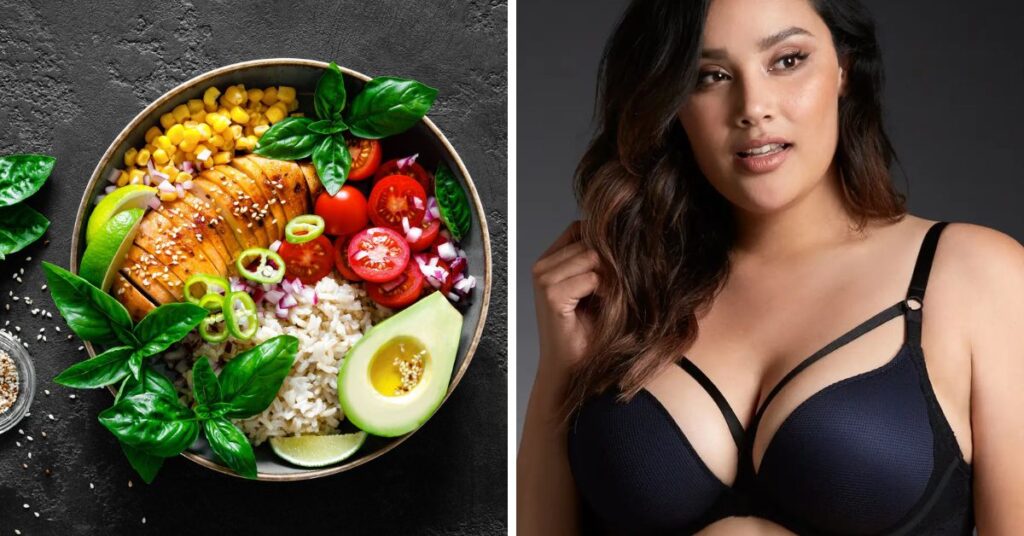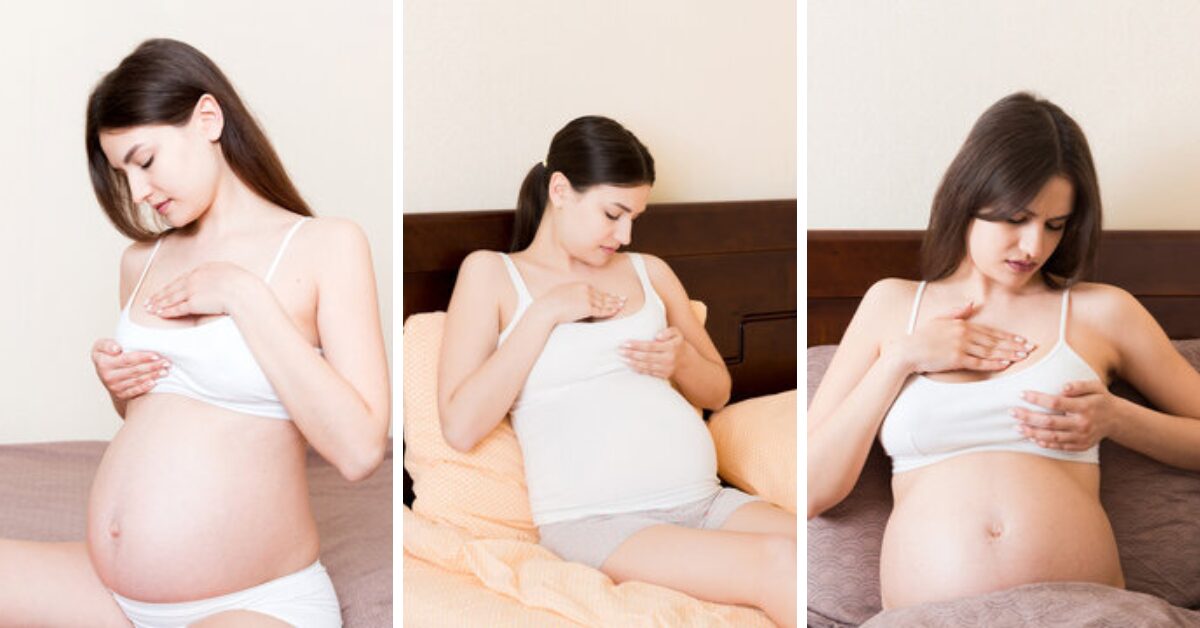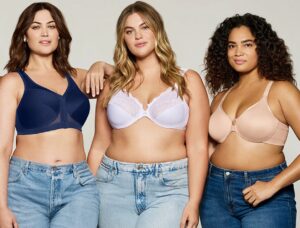As your little one laughs, you might look in the mirror and see changes. You might miss the days when your clothes fit perfectly. Many moms feel this way after having a baby.
Natural breast enhancement after childbirth is a common topic. Moms want to feel whole again and see themselves in the mirror. They want to embrace their femininity while being a mom.
Some moms consider surgery for quick results. But, for those looking for natural ways, the journey is different. Your body has been through a lot, and it needs your care and patience.
Your body's story is rich, marked by nurturing a child. It's not about rushing to change it. The path to natural breast enhancement celebrates your body's strength and adaptability.
There are exercises and foods that can help. Each step is a balance between accepting your body and wanting to change it. This article will guide you through natural ways to feel empowered in your skin.
Breast Changes After Childbirth
Bringing a new life into the world can change your body, especially your breasts. Many new moms notice changes in their breasts. These changes are influenced by many factors.

Why Breast Size May Decrease Post-Pregnancy
One main reason for smaller breasts after childbirth is the end of milk production. Hormonal changes also play a big role in how breasts look after pregnancy. When you stop breastfeeding, the milk ducts shrink. This often makes breasts smaller and less full.
Factors Affecting Breast Fullness After Giving Birth
Many things can change how breasts look after childbirth. Your genes, age, and lifestyle, like smoking, matter. How many times you've been pregnant and how much weight you gained each time also play a part.
It's also key to think about health issues like mastitis or infections. These can change how breasts look and feel. Knowing about these factors helps set realistic goals and find ways to restore breast volume.
Below is a table summarizing common breast changes during and after pregnancy. It also lists complications that might need medical help:
| Stage | Common Changes | Complications |
|---|---|---|
| Pregnancy | Darker areolas, nipple discharge, rapid growth | Breast lumps, blood leakage from nipple |
| Postpartum | Leaking nipples, engorgement, tingling sensations | Mastitis, yeast infections, breast abscess |
If you notice unusual nipple discharge or painful lumps, get medical help right away. Most changes are normal, but knowing about them helps you care for your health. This way, you can enjoy motherhood without worry.
The Role of Chest Muscles in Breast Appearance
After pregnancy, many new moms want to feel confident in their bodies again. They look for ways to improve their physical look. Strengthening the chest muscles is key to boosting chest muscle appearance postpartum and improving breast fullness after giving birth.
Even though the breast tissue itself doesn't change, working out the pectoral muscles can make a big difference. It can give the breasts a lift and make them look fuller.
How Pectoral Exercises Can Enhance Chest Shape
Doing exercises that target the pectoral muscles can really change how your chest looks. Chest presses, push-ups, and butterfly presses are great for moms wanting to improve their chest after having a baby. These exercises help build muscle and can also improve your posture.
Good posture can make your breasts look even better. It's all about how you carry yourself.
Distinguishing Between Muscle and Breast Tissue
It's important to know the difference between muscle and breast tissue. You can't make your breast tissue bigger with exercise. But, you can work on the muscles under your breasts.
These muscles can make your breasts look bigger and more lifted. This is a big part of how you can feel more confident in your body after having a baby.
Research shows that regular strength training and a healthy diet can help. Foods like soy and flax seeds are good for your muscles and breasts. Wearing a good sports bra while working out can also help prevent sagging and discomfort.
So, while hormones and breastfeeding do change your breasts, working on your chest muscles is a good way to improve how they look after having a baby.
Incorporating Exercise Into Your Postpartum Routine
After pregnancy and childbirth, starting to exercise can boost your health and mood. It can also help with breast enhancement. But, it's important to do it safely and carefully.
Knowing when your body is ready for exercise is key after having a baby. Exercising safely helps your health and strengthens your body, including your breasts and chest.
Building a Workout Plan for Chest Enhancement
Start with gentle chest exercises to enhance your breasts. These exercises tone the muscles under your breasts, making them look fuller.
It's important to listen to your body and start slowly. Begin with easy activities like walking. Then, move to more intense workouts as you get stronger. Include exercises that strengthen your core and pelvic floor to support your upper body and improve your posture and chest look.
Safely Returning to Exercise After Pregnancy
The American College of Obstetricians and Gynecologists (ACOG) says it's okay to start with light exercises a few days after giving birth if you had a vaginal delivery. Wait until about 12 weeks or after your doctor says it's okay for more intense workouts.
Start with short, gentle workouts and gradually increase the time and intensity. This helps you transition safely during a vulnerable time.
Always listen to your body. Exercising after childbirth is about more than just looking good. It's about taking care of your body as it heals.
Best Strength Training Moves for Enhancing Breast Fullness
If you're looking into non-surgical breast enhancement post-delivery, focusing on strengthening chest muscles postpartum is key. Here are some effective exercises for a fuller bust naturally.
- Dumbbell Chest Press: Lay flat on a bench, holding dumbbells directly above your chest. Slowly lower them until they're close to the sides of your chest, then press them back up, targeting the chest muscles.
- Dumbbell Pec Fly: Still on the bench, start with arms extended above the chest, dumbbells in hand. With a slight bend in the elbows, lower your arms to the sides until they're parallel to the ground. Bring them back to the starting position to engage the chest fully.
- Push-Ups: Effective for not just the chest but also the shoulders, triceps, and core; start in a plank position and lower your body until your chest almost touches the floor. Push through your palms back to the start position.
- Cobra Pose: Lie on your stomach, palms next to your shoulders. Press into your hands, lifting your chest and arching your back for a deep stretch that also strengthens.
| Exercise | Benefits | Focus Area |
|---|---|---|
| Pull & Tug Exercise | Strengthens, extends chest muscles, aids in firming breast and increasing curvature. | Chest Muscles |
| Butterfly Press | Targets pectoral muscles effectively with dumbbells. | Pectoral Muscles |
| Arm Circles | Pulls pectoral muscles upwards, benefiting overall upper body strength. | Upper Body and Chest |
| Cobra Pose | Promotes blood circulation and muscle growth around the chest. | Chest Muscles and Circulation |
Adding these moves to your routine can make your bust look fuller and firmer. It also boosts overall body strength and wellness. Remember, a balanced diet and regular workouts are key for the best results after giving birth.
Importance of Proper Posture in Enhancing Breast Appearance
Many women don't realize how much posture affects their breast look. Keeping your spine and shoulders straight can make your breasts look bigger and more defined. It's not just about looks; it's about having a healthy posture that supports your body.
Breast Perkiness and Aligning Your Posture
Good posture is key for better breast look and spinal health. Standing tall can make breasts look perkier and fuller. Women with bigger breasts often have a curved spine. Exercises can help fix this and improve breast look.
Here's a simple guide on how posture affects breast look based on recent studies:
| Breast Cup Size | Kyphotic Angle | Surface Rotation |
|---|---|---|
| A | Lesser Angle | Minimal |
| B | Moderate Angle | Moderate |
| C | Increased Angle | Noticeable |
| D | Significant Angle | High |
These findings show how important posture correction is for your chest's look and health.
Exercises for Improved Posture and Breast Protrusion
Doing exercises that strengthen your posture can make your breasts look bigger naturally. Chest presses, push-ups, and yoga poses like Cobra can help. They make your backbone and chest muscles stronger, which can make your breasts look fuller.
Also, doing core exercises like planks and Pilates can improve your posture. These activities help align your spine and pelvis, making your torso firmer and your chest higher. Strengthening your core and chest muscles can make your breasts look better and healthier.
It's a good idea to talk to a physical therapist or fitness expert to make these exercises fit your body's needs. Starting these practices can greatly improve your breast look and overall health.
Natural Herbs and Foods: Can They Truly Increase Breast Size?
Many women worry about their breast size after having a baby. Some believe that certain foods and herbs can make their breasts bigger. But is this really true?

10 Best Foods to Increase Breast Size Naturally at Home
Debunking Myths: Food and Breast Growth
It's easy to think that eating foods like papaya or using herbs like fenugreek can make your breasts bigger. But research shows this isn't true. These foods have phytoestrogens, but they don't make breasts noticeably larger after having a baby. Eating well is important, but don't expect big changes in your breast size from food.
The Hormonal Influence on Breast Size
Hormones like estrogen and progesterone really affect breast size, especially during pregnancy and nursing. But changing these hormones through diet to get bigger breasts isn't proven. New moms should be careful about believing claims about food and breast size.
Even though the idea of natural breast growth is tempting, it's better to focus on feeling good about your body. Understanding how hormones work can help manage your expectations and set realistic goals for your body after pregnancy.
Bra Fitting and Selection: Maximizing Your Natural Shape
Finding the right bra after having a baby is key for comfort and to look good. Your body changes a lot after childbirth. So, you need to pick new lingerie that fits your new shape and needs.
Impact of Wearing the Correct Bra Size Post-Pregnancy
After having a baby, your breast size can change a lot. A big part of breast support comes from the bra band. This is why a good bra band is so important for your breast health and shape.
Also, if your bra size changed during pregnancy, you still need a bra that fits well. Maternity and nursing bras have special features. They adjust as your ribcage grows. Wearing the right size helps avoid discomfort and keeps your bra in good shape.
Choosing the Right Bra for Enhancing Breast Appearance
There are many bra types, like Full cup, Balcony, and Plunge. Each one is good for different breast shapes. Knowing about these can help you find a bra that fits well and looks good.
- Full cup bras give lots of coverage and support, great for fuller breasts after pregnancy.
- Spacer bras are good for changing breast sizes, common when breastfeeding. They stretch to fit your shape.
- Side support bras help pull your breasts in, reducing ‘side spill' which is a common worry for new moms.
Having two sets of lingerie can be helpful. One for everyday and another for special occasions. This way, you can choose the right bra for each time.
Choosing the right bra after having a baby is not just about looking good. It's also about supporting your body during big changes. Getting a professional bra fitting is a key part of your recovery and self-care.
Massage Techniques: Pampering with Potential Benefits
Exploring breast enhancement massage techniques can be soothing and beneficial for new mothers. It's a good option to consider when looking for breast augmentation alternatives after having a baby. These massages can improve well-being and help with breast health, even if they don't change size.
Massage helps relax and improves blood flow and lymphatic drainage. This is important for those at risk of lymphedema, especially breast cancer survivors. Regular breast massage can help reduce symptoms of lymph buildup.
| Benefit | Study Findings | Percentage/Effect |
|---|---|---|
| Pain Relief from Lactation | Reduction in discomfort postpartum through massage | 65% found massages very helpful |
| Lymphedema Management | Massage in addition to compression therapy | Significant symptom improvement |
| Early Detection of Breast Conditions | Self-exams facilitated through regular massage | 99% survival rate with early detection |
| Stretch Marks Prevention | Use of products like Firming Milk & Stretch Marks Balm | 80% reduction in stretch marks reported |
Using special products for post-pregnancy can make massage even better. For example, Generous Soothing Oil or First Care Stretch Marks Cream can improve skin. Young mothers often like these effects.
It's important to know that these breast enhancement massage techniques don't make breasts bigger. They are great breast augmentation alternatives after having a baby. They focus on health and recovery, not size.
Realistic Expectations: Non-Surgical Breast Size Restoration
Many new moms want to improve their body image after having a baby. It's key to know what non-surgical methods can do. Knowing the limitations of natural breast size increase helps set realistic goals for your breast appearance.
Setting Achievable Goals for Postpartum Breast Appearance
It's important to have realistic goals for natural breast enhancement. Focus on making your breasts look better, not bigger. You can try massage, exercises, and wearing the right bra to improve their look and feel.
Getting advice from experts is also key. A guide on breast lift expectations shows that these procedures don't add size but can make breasts look better after pregnancy.
If you want to make your breasts firmer and healthier, eat well and exercise regularly. These steps help manage your body healthily after childbirth. They respect your body's natural limits after giving birth.
In the end, realistic postpartum breast enlargement is about looking and feeling good, not just bigger. By knowing the limitations of natural breast size increase, you can aim for goals that make you feel confident and comfortable in your body.
“Increase Breast Size After Pregnancy” Through Alternative Therapies
Many women look into alternative postpartum therapies to enlarge breasts naturally after breastfeeding. Traditional surgery like implants can change a lot, but it's risky and takes a long time to heal. Here, we explore non-surgical options that are popular among new moms wanting to get back to their pre-pregnancy shape.
- Herbal supplements and teas claim to enhance breast volume.
- Manual pumps and gadgets designed to physically augment breast size through suction.
- Specialized exercises aiming to enhance the pectoral muscles beneath the breasts.
- Dietary changes and regimen promoting hormonal balance and breast growth.
But, it's key to be careful with these alternative therapies. The market is full of products and supplements with unproven claims. Always talk to a healthcare professional before starting any new treatment to make sure it's safe and works.
Before trying these alternatives for enlarging breasts naturally after breastfeeding, weigh their pros and cons. Check if a therapy or product is backed by science by reading reviews, getting advice from experts, and researching its effectiveness. Remember, everyone's body is different, and what works for one might not work for another.
| Therapy Type | Potential Benefits | Considerations |
|---|---|---|
| Herbal Supplements | May promote hormonal balance and tissue growth | Limited FDA regulation, potential side effects |
| Manual Pumps | Can be performed at home, non-invasive | Temporary results, requires continuous use |
| Pectoral Exercises | Builds muscle, supports natural breast lift | Results vary, long-term commitment necessary |
Trying lifestyle changes and alternative therapies can be a rewarding journey towards your postpartum body goals. But, it's important to make informed choices and have realistic expectations when looking to enlarge breasts naturally after breastfeeding.
Navigating Breast Enlargement Product Claims Postpartum
After pregnancy, you might see big changes in your breast size. This could lead you to look into breast enlargement supplements. But, it's key to be careful, especially when evaluating breast enlargement supplements for their real value and safety.
Many women see their breasts grow a lot during pregnancy, often by one to two cup sizes. After having a baby, breasts usually go back to their original size or even get smaller. This is because the glandular parts shrink. Knowing this is important before you think about using enhancement products.
Evaluating the Efficacy of Natural Supplements
When looking at breast enlargement supplements, think about the science behind them and if they're approved. Many supplements aren't FDA-approved and don't have solid proof they work. The idea of bigger breasts might be appealing, but without real tests and approval, it's hard to know if they're safe or effective.
Risks Associated with Unregulated Breast Enlargement Products
It's also important to think about the dangers of unregulated postpartum breast products.
These products might have harmful chemicals or ingredients not listed. They also might not go through the same checks as approved products, which could be risky.
Research on substances like silicone, often talked about in breast implants, shows no big risk of it showing up in blood. But, the makeup and rules for supplements are different from implants.
Before trying any supplement for bigger breasts after having a baby, think about these risks and how your body changes naturally. Always talk to healthcare providers and check product reviews and approvals first. This helps make sure you're safe and it works.
Embracing Your Postpartum Body: Confidence Beyond Size
After having a baby, your body will change. Motherhood is rewarding, but it brings physical changes. We'll talk about how to feel good about your body after giving birth.
Fostering a Positive Self-Image After Giving Birth
Accepting your postpartum body starts with being realistic. Every woman's body changes differently after childbirth. Seeing stretch marks, changes in breast size, and weight as signs of strength can boost your self-esteem.
Start gentle exercises 4 to 6 weeks after giving birth, with your doctor's okay. These help you feel strong and improve your mental health.
Seeking Support from Communities of New Mothers
Connecting with other new moms is important. It offers emotional support and builds a community. Sharing experiences and advice makes the postpartum journey easier.
| Body Changes | Support Strategies |
|---|---|
| Stretch marks | Discussion groups, topical treatments |
| Weight fluctuation | Nutritional advice, wellness coaching |
| Breast changes | Proper bra fitting, breastfeeding support |
| Emotional health | Therapy sessions, peer support meetings |
The table shows common postpartum changes and how to deal with them. Support is key to feeling confident about your body after having a baby.
Your postpartum body is worth appreciation and care. By accepting changes and finding community support, you can build a positive self-image. Remember, your worth doesn't decrease because others can't see it. Your body's story is unique and yours alone.
Consulting Professionals: When to Seek Medical Advice
Knowing when to get medical consultation after pregnancy is key for your health, especially with postpartum breast changes. Many changes are normal, but some symptoms might need professional advice for postpartum breast changes.
Here are some tips to know when to see a healthcare professional.
If you have unusual symptoms like constant pain, big size differences, or lumps, get medical help.
Breastfeeding and postpartum changes can cause normal lumps. But, it's best to check with a doctor to make sure it's not something serious.
- Persistent pain or discomfort that doesn't go away with home care or time.
- Sudden changes in breast shape or size not due to normal postpartum changes or weaning.
- Noticeable lumps or thickened areas in the breast that stay the same.
- Changes in skin texture, like dimpling or redness, which could mean infection or other issues.
- Nipple discharge other than milk, especially if it's bloody or happens without reason.
Talking to a doctor can also give you peace of mind and advice on common issues like dry skin, sensitive nipples, and changes in breast elasticity. Here's some info on different breast-related changes and treatments:
| Condition | Advice/Treatment |
|---|---|
| Skin Dryness & Nipple Sensitivity | Use of lanolin, coconut oil, or calendula-based creams |
| Smoking Effects on Skin Elasticity | Seek help to quit smoking to improve overall skin condition |
| Breast Size Increase During Pregnancy | Supportive bras during and after pregnancy to manage comfort |
| Post-Breastfeeding Surgical Options | Consultation required before considering breast augmentation or lift |
Your healthcare provider is there for you before, during, and after pregnancy. They can give you valuable insights and professional advice for postpartum breast changes. They ensure you get the right care for your situation. For any health worries or to talk about breast enhancements, getting a medical consultation after pregnancy is crucial.
Advancements in Natural Breast Augmentation Techniques
Natural breast augmentation is becoming more popular. It uses fat grafting techniques to add volume to the breasts. This method gives a more natural look and feel than traditional methods.
Exploring Fat Transfer Procedures
Fat transfer for breast augmentation is special. It uses fat from the patient's own body. This reduces the risk of rejection and allergic reactions.
This procedure not only makes breasts bigger. It also improves body shape by removing fat from unwanted areas. Recent data shows that fat transfer procedures leave no scars on the breasts. There are very small scars where the fat was taken.
Comparing Natural Augmentation to Traditional Implants
The comparison to breast implants shows big differences. Traditional implants, like silicone and saline, have been common. But, fat grafting is becoming more popular. It offers the chance to enhance breasts and shape the body without foreign materials.
New silicone implants are lighter, making them more comfortable. There are also new ideas like micro-implants and stem cell technology. These aim to provide natural growth with fewer risks.
Choosing between fat grafting and implants depends on what you want. It's important to pick a board-certified plastic surgeon. They ensure safety and the best results. As technology advances, the difference between natural and artificial augmentation is getting smaller. This offers great options for those wanting to improve their figure.
Post-Pregnancy Breast Enlargement and Weight Management
After having a baby, many moms face challenges with their breast size and weight. The joy of being a mom is great, but keeping breast size after pregnancy and staying healthy can be tough. Finding good ways to manage your daily life can help keep you looking and feeling good.
Impact of Weight Fluctuations on Breast Volume
During pregnancy and breastfeeding, your breasts may have changed a lot. This is because of milk production, which makes your breasts denser. After you stop breastfeeding, the extra volume might go away. Learn how to manage your weight after pregnancy to avoid big changes in breast size. Quick weight changes can also make your breasts less firm and saggy.
Strategies for Maintaining a Consistent Body Weight
Many new moms worry about their weight. On average, women lose about 13 pounds at childbirth, but often keep around 12 pounds six months later. To manage your weight, eat well and do fun, gentle exercises as your doctor suggests. Being active helps keep your breast size and boosts your health and energy.
Watch out for health issues like postpartum thyroiditis, which can make you gain weight. Also, remember that not sleeping enough, forgetting to eat, and skipping routines can make losing weight harder. Aim for slow weight loss to get back to your pre-pregnancy weight safely and healthily.
Conclusion
Looking back, achieving natural breast enlargement after having a baby is complex. Studies show that BMI and hormones don't directly affect breast size after pregnancy. Yet, they highlight the intricate nature of postpartum changes. Every woman's journey is different, and factors like breastfeeding and health are crucial.
Your postpartum time is filled with big changes. It's key to accept these changes for your well-being. Research shows that breastfeeding can help increase breast size, but a higher BMI might not. First-time moms often face severe engorgement, which needs careful handling for comfort and breastfeeding success.
In conclusion, there's no single way to naturally enhance breasts after pregnancy. Yet, staying fit, eating well, and keeping good posture can help a lot. Most importantly, getting professional advice and setting achievable goals can boost your confidence. Embracing your body's changes is a path to self-acceptance. With time and care, you can feel more confident and comfortable in your postpartum body.







